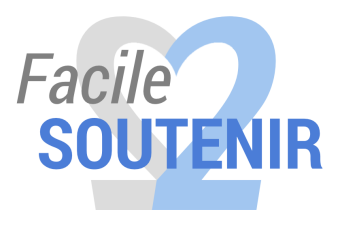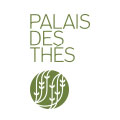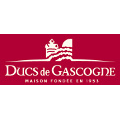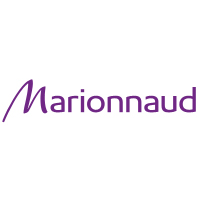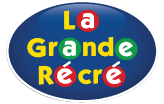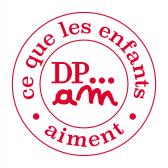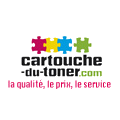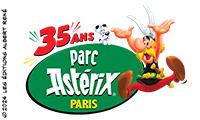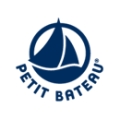Adult Involvement in Science Studying: Best Practices for Kindergarten Science Projects at Home
Parental input in early science learning is important for fostering curiosity, establishing foundational skills, and creating a lifelong interest in scientific query. For kindergarten-aged children, research projects at home provide a valuable opportunity for hands-on exploration and also learning, as well as a meaningful way for parents and children to interact together. At this stage, children are naturally curious about the world around them, questioning questions and eager to learn how things work. Parents can easily play a crucial role simply by guiding this curiosity by means of simple yet effective scientific disciplines projects that align using children’s developmental stages. Over the right approach, parents can make science a fun, accessible, along with enriching part of their little ones daily life.
One of the most important areas of supporting science learning in your house is choosing projects which might be developmentally appropriate and serve the short attention duration of young children. Simple assignments with tangible outcomes, for instance watching a seed inner thoughts or creating a homemade volcano, can capture children’s curiosity while introducing basic methodical concepts. Parents can boost these experiences by stimulating observation, asking open-ended queries, and discussing the results making use of their children. For example , while developing a plant from a seedling, parents can ask, “What do you think will happen next? ” or “What does the seeds need to grow? ” These sorts of questions promote critical considering and encourage children to produce predictions, helping them engage more deeply with the learning procedure.
Safety is paramount any time conducting science projects along with young children. Parents should carefully select activities that involve safe materials and avoid sophisticated tools or chemicals. Typical household items, such as cooking soda, vinegar, paper towels, as well as food coloring, can be used to develop engaging experiments without compromising safety. For instance, combining cooking soda and vinegar to have a “fizzing” reaction is a harmless and fun way for young children to explore chemical reactions. Making sure the project a safe environment, parents allows their children to experiment freely and confidently, reinforcing a good attitude toward scientific uncovering.
Creating a designated space with regard to science activities can make the task more organized and pleasant for both parents and children. This space could be a table or countertop region with a plastic mat or maybe tray to contain any mess, along with easy access to be able to materials such as measuring mugs, markers, notebooks, and another resources needed for projects. Developing a dedicated science corner could build excitement and indicate to children that this is a special area for learning and exploration. Additionally , this specific setup allows parents to be able to introduce the concept of setting up and also cleaning up after an experiment, reinforcing routines that youngsters will encounter in class room science activities.
Parental assistance is crucial in facilitating inquiry and exploration during technology projects. Rather than focusing solely on correct answers or even specific outcomes, parents should encourage children to make correction, ask questions, and describe these people see. For example , when studying the properties of water having items that float and bowl, parents can prompt children to make predictions about which often objects will float and also why. By guiding youngsters to observe and describe the results, parents help build vocabulary and reasoning skills. All these practices align with the research method, instilling a process of inquiry that can be built when as children grow older.
Some sort of helpful strategy for parents is to integrate science learning in to everyday routines and activities, making science feel like a natural part of life. Simple routines such as baking together, garden, or observing the weather provide opportunities to introduce basic technological principles. When baking, mother and father can talk about how elements like flour and cooking powder change when blended with water and heat, bringing out early concepts in chemistry. Observing the natural world on a wander or in the backyard even offers countless learning moments-parents can certainly discuss the parts of some sort of plant, notice the different ordre of leaves, or listen closely for animal sounds, all of which enhance observational skills in addition to environmental awareness.
Keeping a science journal together is a effective practice for fostering scientific thinking in children. While kindergarten-aged children may well not yet be able to write detailed findings, they can draw pictures or even use simple words to spell out their findings. Parents will help by labeling drawings or perhaps writing down their children’s views. For example , after planting some sort of seed, children can draw what the plant looks like each day as it grows, providing a graphic record of the process. This particular practice not only builds paying attention skills but also creates a good sense of accomplishment as little ones watch their projects improvement over time. A journal allows parents to revisit finished activities, reinforcing learning and inspiring children to reflect on these people discovered.
Reading books about science topics is an excellent means for parents to supplement hands-on projects and reinforce ideas. Age-appropriate science books may introduce children to pets or animals, weather, plants, and the real world, expanding their information and vocabulary. Parents may read together and then bring up the books to real-life observations or experiments. For example, after reading a book about rain, parents in addition to children can make a simple water gauge using a plastic mug and measure rainfall more than a week. By linking guides to activities, parents create a cohesive learning experience that builds understanding and intense curiosity.
Consistency in science learning at home is another best process that enhances children’s interest and engagement. Rather than doing a science activity like a one-time event, parents will make science projects a regular portion of their weekly or once a month routine. This consistency reephasizes concepts over time and provides young children with a steady stream connected with exciting new discoveries. Kids are more likely to develop a sustained affinity for science when they are exposed to it regularly and view it as a possible enjoyable part of life. Creating a “science day” each week, where parents and children here is another new experiment or take another look at a favorite one, can create anticipation and establish a routine that keeps science learning still living in the home.
For parents new to scientific disciplines projects, starting with simple, guided activities can be an effective approach to build confidence and acquire familiarity with scientific topics. Numerous online resources, educational websites, along with library books offer stage-by-stage instructions for beginner-friendly tasks that require minimal preparation. Through starting with guided activities, parents can develop their own understanding and comfort with the material, which often enables them to guide their children more efficiently. As parents gain self-confidence, they can adapt projects or perhaps create new experiments in which cater to their child’s unique interests and learning speed.
Finally, celebrating effort along with curiosity rather than focusing only on results is a very best practice for fostering an attractive science learning experience. In the kindergarten level, children reap the benefits of encouragement and reinforcement that emphasizes exploration, curiosity, aiming new things, even if their own predictions turn out to be incorrect. By praising effort and attention, parents help children make resilience and learn to strategy science with an open head. This positive reinforcement nurtures https://www.anuncomplicatedlifeblog.com/2015/09/5-necessities-for-attending-blog.html a love for discovery and induces children to embrace the training process itself, rather than experience pressured to achieve specific solutions.
Parental involvement in kindergarten science learning plays a instrumental role in establishing a foundation for long term education. By providing a supporting, safe, and engaging environment, moms and dads can nurture their kids natural curiosity and create a confident association with science. Applying best practices such as developmentally appropriate projects, encouraging observation, as well as making science a regular part of life, parents can create skills that are essential for long term learning. When children truly feel empowered to explore, ask questions, and also think critically, they get both the confidence and the attention needed to navigate the world along with a scientific mindset.
